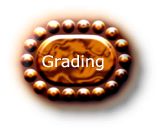

COMM 386 – Experiential Learning – Spring 2003





COURSE DESCRIPTION AND GOAL: Supervised internship
experience with communication professional. The goal of the course is to
relate academic background in communication to professional experience.
This course may only be taken once. Communication majors should know
that only three credits of COMM386 may apply to a communication major.
HOURLY REQUIREMENT:
· 3 credit internships require a minimum of 135
total hours of work at the internship site.
· 6 credit internships require a minimum of 270
total hours of work at the internship site.

COURSE SCHEDULE and MEETING TIMES:
Week 1* Course orientation. {January 28}
Week 2* Students introduce themselves and their internships.
{February 4}
Week 3* Goal setting assignment is due February 11 at
4:00 p.m. (#2).
Week 6* Weekly logs due March 4 at 4:00 p.m. (#1).
Week 10* Second set of weekly logs due April 8 at 4:00
p.m. (#1).
Week 12 Deadline to schedule site visits is April
22 (#3).
Week 13* Last classroom meeting day. {April 29}
Week 14 Deadline for site visits is May 5 (#3).
Week 16 Assignments #4, #5, #6 are due. Turn
in to 2101A
Skinner
Building.
* Meet in the classroom on these days only, Tuesdays
4:00 p.m. – 6:30 p.m. in TYD
1102.

COURSE GRADING
FORMAT FOR WRITTEN WORK:
Include your name, the date of the completed assignment,
the NUMBER (#1 through #7) and title of the assignment. This is a
communication course: accuracy, clarity, and quality of expression count.
All assignments must be word processed or typewritten. Proofread your work
carefully. Errors in spelling, grammar, and punctuation will reduce your
assignment grade by one half a letter grade or more.
GRADING CRITERIA: The grading criteria for all assignments
unless otherwise indicated are:
1) following the assignment;
2) completeness of the work (give examples and explain
them…leave no questions raised by the assignment unanswered);
3) clarity of writing and presentation (your analysis
and reasoning are clear to the reader, your paper is neatly printed with
the pages stapled together);
4) quality of writing and presentation (your writing
is interesting to read and easy to understand, your portfolio presentation
is simple, straightforward, and neat); and
5) timeliness (your work is on time).
GRADING WEIGHTS:
#1 weekly logs
#2 goals +
#3 on site visit
#4 portfolio/project
#5 student evaluation of internship
#6 supervisor evaluation of student
#7 contribution to the class |
10 percent
10 percent
5 percent
40 percent
10 percent
20 percent
5 percent
|

COURSE POLICIES
ACCOMMODATIONS FOR STUDENTS WITH DISABILITIES:
Disabilities should be registered with the Disability
Support Service (4-7682) so necessary and appropriate arrangements can
be made to assist the student. Students should inform the instructor as
soon as possible and no later than the third week of class.
ATTENDANCE:
The university recognizes four legitimate excuses for
missing class: illness, religious observance, participation in university
activities at the request of university authorities, or compelling circumstances
beyond the student’s control. These are the ONLY circumstances under which
you will be allowed to reschedule an assignment. You must provide a letter
signed by a person in a position to make an authoritative determination
of the cause of absence. In the case of an emergency, you must contact
the instructor as soon as possible and within five days of the due date
at the latest. Otherwise you will fail the assignment. In the case of a
religious observance, notify the instructor five days in advance.
LATE ASSIGNMENT POLICY:
Except for illness and other documented emergencies,
you must have the approval of the instructor prior to the assignment date.
Failure to turn in an assignment on time without prior approval by the
instructor will result in a score of zero for the assignment. Leaving messages
(including e-mail) for the instructor or teaching assistant does not constitute
approval by the instructor. If you expect to receive credit for a
late assignment, you MUST attach written documentation to the assignment
explaining why it was late according to the university’s four legitimate
excuses under Attendance.
ACADEMIC HONESTY:
The instructor expects honesty in all assignments.
The code of academic integrity is on the Web at http://www.inform.umd.edu/jpo.
Academic dishonesty of any sort constitutes grounds for failure of the
assignment and possible failure of the entire course. If you have
any questions about what practices are and are not acceptable, please consult
the instructor before the assignment is due.
The University has a nationally recognized Honor Code,
administered by the Student Honor Council. The Student Honor Council
proposed and the University Senate approved an Honor Pledge. The
University of Maryland Honor Pledge reads:
I pledge on my honor
that I have not given or received
any unauthorized assistance
on this assignment/examination.
Unless you are specifically advised to the contrary, the
Pledge statement should be handwritten and signed on the front cover of
all papers, projects, or other academic assignments submitted for evaluation
in this course. Students who fail to write and sign the Pledge will
be asked to confer with the instructor.
EXTRA CREDIT:
There is no extra credit in this course.
POLICY ON INCOMPLETE:
The instructor will give a grade of incomplete only to
a student whose work has been satisfactory in quality, when, because of
illness or other circumstance beyond her or his control, the student has
been unable to complete some small portion of the course work. The
student must write a proposal of how and when the materials will be completed.
It must be accepted and approved by the course instructor.









